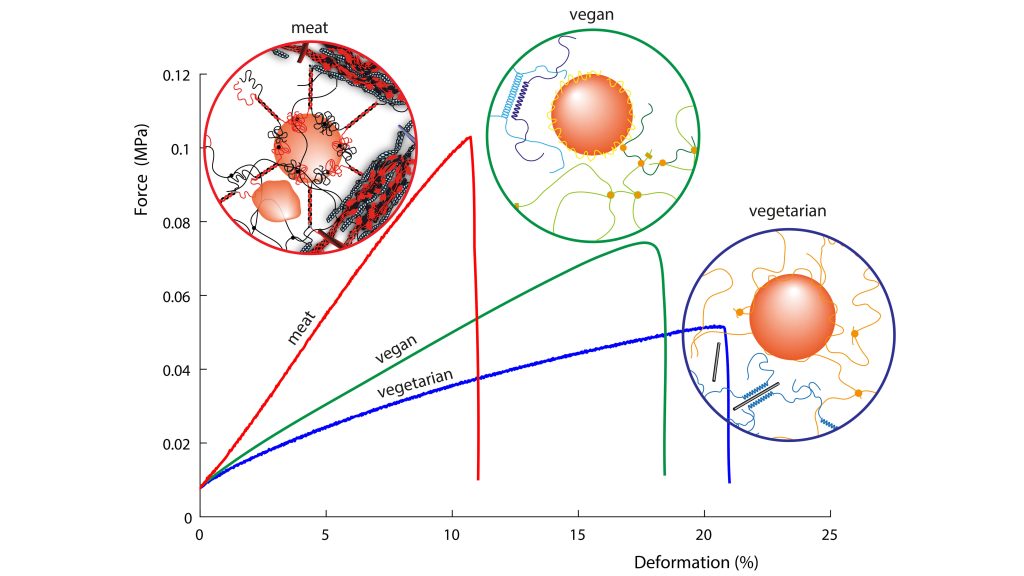From the Journal: Physics of Fluids
WASHINGTON, April 12, 2022 – Plant-based meat surrogates have been the rage for some time. “Impossible” has become a buzzword to tout everything from vegetarian burgers at fast food chains to meatless alternatives in grocery store aisles. Indeed, modern methods of biotechnology, food technology, and process engineering can yield high optical similarities and targeted molecular-sensory methods that can largely approximate appearance, taste, and smell.

On a molecular scale, however, plant-based meat appears completely different from the food it tries to mimic, which is noticeable in various ways.
In Physics of Fluids, by AIP Publishing, scientists from Germany – a country that produces more than 1,200 types of sausages – investigate the molecular function and effects of vegetable proteins of different origins to identify sensory weak points in plant-based meat substitutes.
“We use direct comparisons of meat-based, vegetarian with egg white, and pure vegan versions to show the differences in bite, chewing, mouthfeel, bolus formation, and associated enjoyment characteristics of the sausages,” said co-author Thomas A. Vilgis, from the Max Planck Institute for Polymer Research.
The researchers said muscle proteins emulsify fats and oils in a very different way than plant proteins do while lending to a different biting behavior in the mouth.
“The ‘crunch’ or ‘crack’ of meat sausages is inevitably different than that of vegan sausages, simply because the molecular properties of the proteins are markedly different,” said Vilgis.
In addition to tensile experiments, Vilgis and his colleagues employed rheology and tribology in molecular models, bringing greater insight than pure sensory analyses to examine meat sausages and their vegetarian surrogates.
“We’re looking much deeper than what is usually done in food technology, by taking into account the molecular properties of ingredients as much as possible,” Vilgis said.
“We are taking a closer look at the proteins as well as the sequence of amino acids, which we understand as a ‘code’ from which we can read certain properties to better understand the behavior of the sausages in the mouth when they are consumed. Thus, fundamental differences in the molecular structure and mouthfeel become immediately apparent.”
Building on the authors’ previous research of soft matter theory and theoretical polymer physics, the study represents an entirely new approach to experimental food science.
“We’re working directly at the interface between basic science and technological application,” said Vilgis. “With these methods, it is possible to make predictions in how the physical properties of an alternative sausage can be improved – and make targeted developments.”
###
For more information:
Larry Frum
media@aip.org
301-209-3090
Article Title
Meat-, vegetarian-, and vegan sausages: Comparison of mechanics, friction and structure
Authors
Marta Ghebremedhin, Mathias Baechle, and Thomas A. Vilgis
Author Affiliations
Max Planck Institute for Polymer Research
